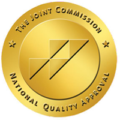Group therapy is a treatment technique where at least one psychologist or counselor leads people in addressing their issues. In group therapy, groups can range from three to 15 people and often form a supportive accountability network. A group therapy program could be helpful during a person’s recovery. We’re happy to give you more information about our group recovery programs if you call us at Avedis Recovery at 833.514.0579.
What Happens In a Group Therapy Program?
What happens in a group therapy program or session may vary depending on the goals of those involved. There are several kinds of group therapy, such as:
- Interpersonal groups, which focus on building interpersonal relationships
- Cognitive-behavioral groups, which focus on identifying and changing disordered emotional responses, thinking patterns, and behaviors
- Support groups, which may provide benefits to family members of those going through recovery as well as those in recovery themselves
- Psychoeducational development groups may help educate clients about dual diagnoses or disorders
- Skills development groups, which encourage people to learn new skills to cope with mental disorders or addiction
Depending on the kind of program a client enters, they may be in a group as small as three people or as large as 15 or more.
The group normally sits in a circle so that everyone can see everyone else. Some groups will be “free-form,” which may work by encouraging people to speak up. Others may run according to a specific plan set up by the therapist.
When Does Group Therapy Occur?
Group therapy typically happens in both inpatient facilities and outpatient programs. For inpatients or residential clients, the groups may meet within the facility a few times a week for an hour or two at a time.
Those completing outpatient programs or partially hospitalized may attend groups at the facility or elsewhere, depending on the program. Again, the group usually meets a few times a week for an hour or two.
Open and Closed Sessions
Be aware that groups may be opened or closed. Open groups are open to new participants who can attend those sessions anytime. On the other hand, closed sessions consist of only specific core members. They are invited to participate.
It’s more likely to be a closed group in a residential facility, while open groups may be hosted in the community or at an outpatient facility.
Understand the Benefits of a Group Therapy Program
There are many reasons why group therapy programs benefit people going through recovery. Some of the main benefits include being in a group with other people going through similar recoveries so that they can cheer each other on. They can also listen to others talk about the challenges they’re going through and listen to their resolutions while experimenting with new thoughts and feelings.
In group therapy, people learn together and grow together. They may see their issues differently, spurring them to continue sober.
Group therapy may address more than just drug or alcohol addiction, too. Some programs will also go over other issues, like:
- Body image concerns
- Nutrition
- Living with mood disorders
- Processing trauma
- Relapse prevention techniques
The benefits of a group therapy program can be immense, so it’s normally a good idea for people to try group therapy even if they already receive private therapy sessions. Seeing what others have gone through and how they’ve grown and changed can positively impact recovery.
Contact Avedis Recovery to Find a Group Therapy Program Near You
At Avedis Recovery, we can help you or someone you love to find a suitable group program. Contact us today at 833.514.0579 for help finding a program near you in California.









